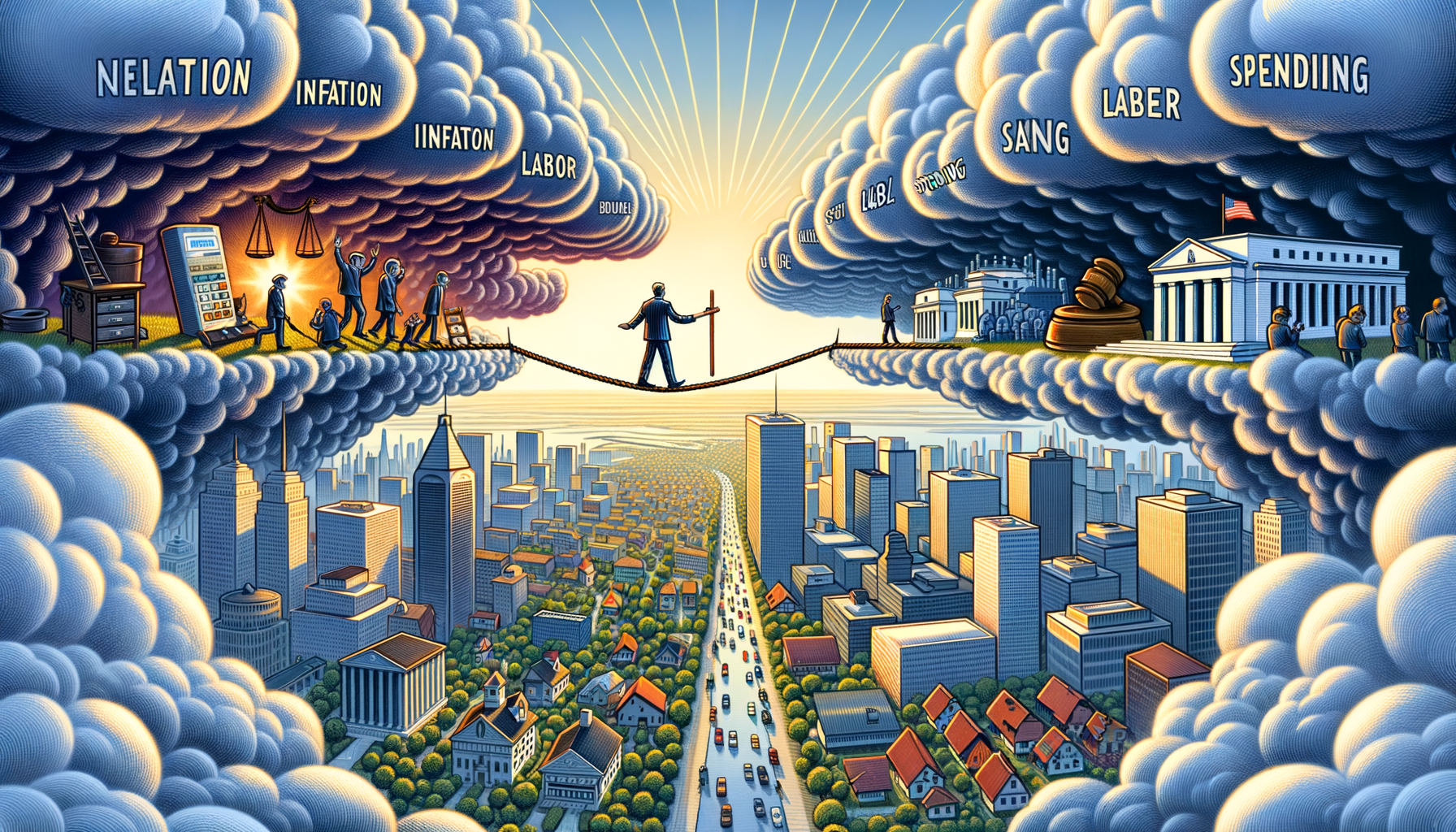“Decisive Week: How Upcoming Events Could Shape the Direction of Federal Rate Policy”
The monetary landscape is simmering with anticipation as we brace for two crucial events that could significantly impact the trajectory of federal rate policy. The week kicks off with a vital performance report detailing January’s economic activities. This will be followed by a two-day policy meeting of the Federal Open Market Committee (FOMC), where pivotal decisions regarding interest rate movements will be discussed. The outcomes of these two events could potentially set the tone for the Federal Reserve’s future actions.
The week’s opening salvo—the economic report for January—will bring fresh insights into the nation’s financial pulse. This dossier is crucial for understanding the current state of our economy. The data contained within it encapsulates a variety of economic indicators, shedding light on sectors such as labor, spending, and inflation. This kind of broad picture is essential for establishing the nation’s financial baseline for the year ahead.
Critical among the indicators is inflation, a stealthy menace that erodes the value of money. Inflation has been ubiquitous in recent headlines, surging to its highest level in almost forty years. This puts it squarely in the sights of economists and financial policy specialists, who will use January’s figures to scour clues into future inflation trajectories.
If overall inflation continues its upward trend or remains high, pressure mounts on the Federal Reserve to tighten monetary policy to rein it in. This policy tightening is typically done through interest rate hikes. As thus, scrutinizing this data helps experts plot likely paths for interest rate adjustments. These decisions carry potent implications for consumers and investors alike. Higher interest rates can make loans costlier, affect credit card debt, influence mortgage rates, and sway the direction of investment flows.
The economic report is not the only source of frenzy. Just around the corner is the FOMC meeting, a rendezvous of paramount importance. This gathering is the crucible where the potentates of finance convene to shape the financial destiny of millions.
Interest rate decisions are discussed and committed upon in these conclaves—decisions that form the crux of monetary policy and stir the cauldron of the financial markets. The meeting’s minutes, a veritable document of cogitation and consensus, provide insights into the thought process behind, and the outlook of, the FOMC’s policymakers. Dial in to what figures or issues influenced their decisions and glean from their projections of the economic landscape that lie ahead.
Both the economic report and FOMC meeting have implications stretching far beyond our borders. The echo of their outcomes resonate throughout the global economy. Owing to the dollar’s dominant role as the world’s reserve currency, any interest rate change by the United States can affect international trade, investment, and financial stability.
Therefore, understanding these two events’ potential impact helps one grasp the wires puppeteering the larger macroeconomic stage. It is essential to remember that the central bank uses these as devices to herd the economy toward its strategic triad: maximum employment, stable prices, and moderate long-term interest rates.
Lately, the Federal Reserve finds itself at crossroads, thrust as the vanguard against inflation. Finding an equilibrium between combating inflation while avoiding crippling the recovery in a still fragile post-pandemic economy is a Herculean task. FOMC meetings and economic reports are instrumental as the compass and gauges in this fine balancing act.
As the weeks’ events unfold, many sectors await with bated breath. From Wall Street to Main Street, ripple effects from these events will unfurl. Financial markets often jitter with uncertainty leading up to these events, and often breathe a sigh of relief following the release of information. Companies evaluate this information for strategizing their capital allocation, expansion, contraction, and pricing decisions. Consumers, equally affected, sense the impact of policy changes on their personal finance and cost of living.
Going forward, the decisions made in the FOMC meetings and the revelations brought forth by the economic reports could significantly affect the everyday person’s wallet. From influencing your savings account’s interest rate to altering the cost of your new house’s mortgage – the palpable consequences of these built up to be quite significant.
This delicate interplay between economic indicators and the Federal Reserve’s policy adjustments is a living testament to the dynamism of our economy. It is a chess game of moves and countermoves, a dance of actions and reactions. And above all, it illustrates how data, analysis, and prudent policy-making is vital in stewarding our economy through the rough and smooth.
While it is essential to follow these events, dissect the information, understand the implications and brace for the impact, it is also critical to remember the power of resilience and adaptability. Our economic history suggests that even in challenging times, we find conquering ways, retweak strategies, rechannel resources and keep the engine of growth running.
In conclusion, the upcoming economic report and FOMC meeting are events that have far-reaching consequences, whose influence extends beyond the economics sphere, permeating almost every facet of modern life. The delicately maintained equilibrium between these monetary policies and tactics unravels the interconnectedness of our economy, the intricacies of its workings, and the subtle nuances in its management. This understanding allows us to navigate better through the financial seas, being aware of the potential storms, and equips us to sail through it more efficiently. So, brace yourself for an exhilarating ride and let’s chart the future of the financial world together.

